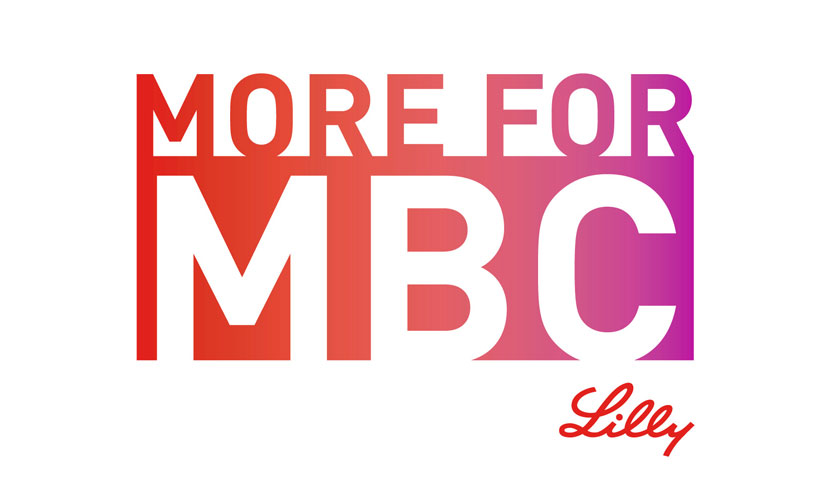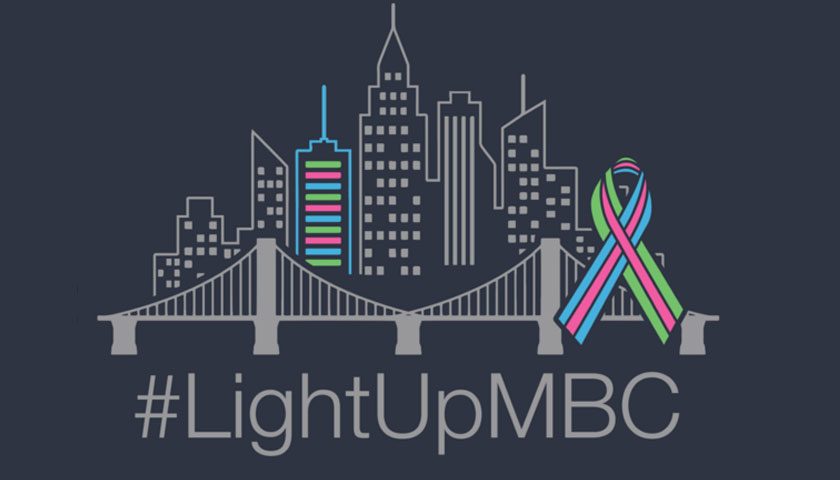Results from a new national, multi-stakeholder survey commissioned by Eli Lilly and Company reveal that metastatic breast cancer (MBC) places a significant daily strain on those living with the incurable disease. People with MBC who participated in the survey reported spending nearly half their time each week (47 %) on things related to their cancer. In addition:
- Nine-in-ten respondents report experiencing a new or worsened emotional or mental health condition because of their diagnosis, with anxiety (61 %), insomnia (56 %) and depression (56 %) most often reported.
- Friends and family also feel the significant impact of MBC, with 85 percent experiencing a new or worsened emotional or mental health condition since their loved one’s diagnosis, most often anxiety (59 %) and depression (45 %).
- Healthcare providers recognize the importance of understanding the emotional aspect of MBC, with 45 percent of those surveyed reporting an interest in learning more about the impact of MBC on a patient’s mental health and 71 percent showing a desire to understand how to help patients maximize quality of life.
“Everyone’s metastatic breast cancer is different, from the genetic makeup of the cancer cells to where the cancer has spread, but the universal bond MBC patients share is the immense fear and anxiety that come with this advanced disease. Sometimes the fear looms large, and other times I can forget about it, but it never goes away,” explains Christine Hodgdon, Hear My Voice leadership volunteer with Living Beyond Breast Cancer (LBBC), a national non-profit providing programs and services to help people whose lives have been impacted by breast cancer. “I think it is so important that we help people understand the daily impact of MBC, including the mental and emotional toll, so we can better support each other and share ways in which we thrive despite living with this disease. For me yoga, meditation and acupuncture have helped me cope with my disease, and having a pose developed specifically for the MBC community that represents our unstoppable spirit is very empowering.”
In response to the survey findings, Lilly created the Thriver Movement as part of its More For MBC initiative, which aims to increase understanding of the daily impact of MBC, deliver more dedicated resources and advance the development of more treatment options. Lilly partnered with MBC activist and Oscar-winning actress Mira Sorvino as well as celebrity fitness instructor and yoga expert Anna Kaiser to launch the Thriver Movement. To mark the initiative’s debut, Lilly collaborated with Kaiser and yoga instructors at the Dana -Farber Cancer Institute to develop a unique Thriver yoga pose and flow which is symbolic of the emotional and physical strength these women and men exude and can be done daily. The Thriver pose represents the strength and never-ending spirit of women living with MBC. Each day, by re-grounding in this pose and flow, people living with MBC and those who support them can channel positive energy and strength inward and outward to remind themselves and others to thrive in the face of an incurable disease.
“MBC takes the lives of 113 people each and every day. It took the life of my best friend, and that is why I am lending my support to shine a light on the spirit of the women and men living with MBC and the ways in which they thrive each day. We need to do more to support them, to provide more resources, to offer more solutions and to generate more funding so they can keep thriving,” Sorvino said.
The Thriver Movement encourages the public to show their support for people living with MBC by posting a photo or video of themselves doing the Thriver pose solo or in groups with the hashtag #MoreForMBC. For every post shared publicly on social media, Lilly will donate $100 (up to $225,000) to the MBC advocacy community to help people living with MBC thrive.
“As a practicing oncologist and researcher, I saw firsthand the deep physical and emotional weight that comes with living with metastatic breast cancer,” said Maura Dickler, M.D., vice president, late stage development, Lilly Oncology. “The reality of being on treatment for the rest of their lives can put a strain on those living with the disease and their support networks. As part of the More For MBC initiative, we are committed to providing programs and resources that empower people to take a more active role in their care, including understanding their unique disease characteristics and treatment options, driving more informed dialogue and advancing more research.”
For more information and to join the conversation, visit www.facebook.com/moreformbc. This page highlights the full survey findings to further elevate attention on MBC and provide resources to help the MBC community thrive.
Additional Survey Findings
Relationships become critically important to MBC patients.
- When asked how the importance of various parts of their lives have changed since diagnosis, 85 percent say having a meaningful relationship with family is even more important now, and 68 percent say it’s more important now to be a good friend. Conversely, 67 percent say possessions are less important, along with 61 percent who say what others think of you is less important and 46 percent who say their career is less important.
MBC can be invisible.
- 81 percent of people with MBC say that most people cannot tell that they have the disease.
People with MBC want more support than they’re getting, but they are reluctant to ask for help.
- Patients would like more emotional support and companionship, with a 22 percent gap in each between what they currently get and what they would like to get.
- More than a third of patients say they are unlikely to ask for help when it comes to emotional support and companionship (37 % and 35 % of patients, respectively).
More education is needed.
- Fewer than half of patients — just 43 percent — are familiar with the newest treatments approved for MBC.

